Keeping companion animals safe in winter
With temperatures dropping and forecasts of snow on the way it’s important to prepare our animal friends for the wintry weather ahead! Help your companion animals to stay safe and warm this winter with our tops tips!
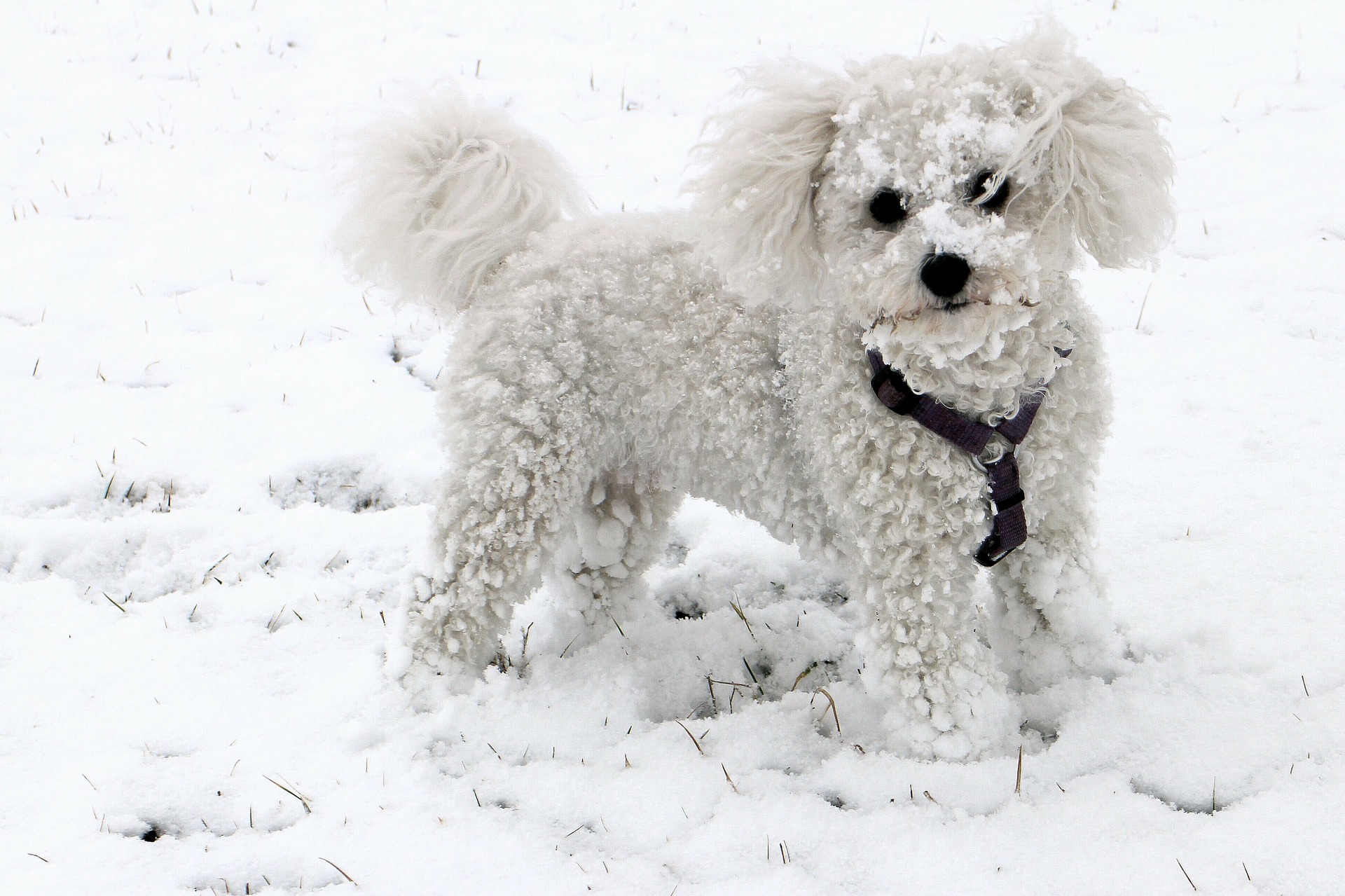
Walking in the cold weather
Dogs
- Safety is important! Snow can be new and exciting for dogs so make sure it’s safe before you let them off the lead. Check for dangers, such as hidden holes or ice. Keep your dog on a lead if it is snowing heavily.
- Dog jumpers and thick coats are great for short haired or elderly dogs, who can get too cold when they’re out in winter. If your dog has longer fur you can allow their winter coat to grow for extra protection.
- Flashing collars or high-vis jackets are a good idea if you are walking when it’s dark. Dogs should always be microchipped, and the chip details should be kept up to date in case your dog gets lost.
- Leads, collars and harnesses should be regularly checked to ensure they are functioning safely, as they are more at risk of wear and tear or damage during winter weather. If it’s extra cold, it can be very difficult to do up lead clips and attach them to collars and harnesses. Wet weather may also cause metal clips to rust.
- Check paws regularly, particularly if your dog suddenly seems uncomfortable or starts limping. Their paws may be too cold or could have become impacted with snow. Ice balls can form between the pads and toes on their feet, or cling around the surrounding fur. Remove any you find immediately.
- Grit, sprayed onto roads and pavements to melt the snow and ice, contains chemicals that can lead to burns on paws if they come into prolonged contact. Wipe your dog’s paws, legs and tummy after a walk to prevent grit, as well as dampness, irritating the skin.
- Iced over lakes and ponds can be very dangerous for your dog to run or walk on, as the ice may not be thick enough to take their weight. If your dog does find their way onto some ice do not follow and call them back to you. If they fall through the ice, encourage them to swim back to you and call the emergency services.
- Remember it’s probably too cold for your dog to be out for extended periods of time if you feel too chilly. Don’t overdress yourself too warmly for a dog walk, that way you are more likely to be aware of how cold your dog is feeling.
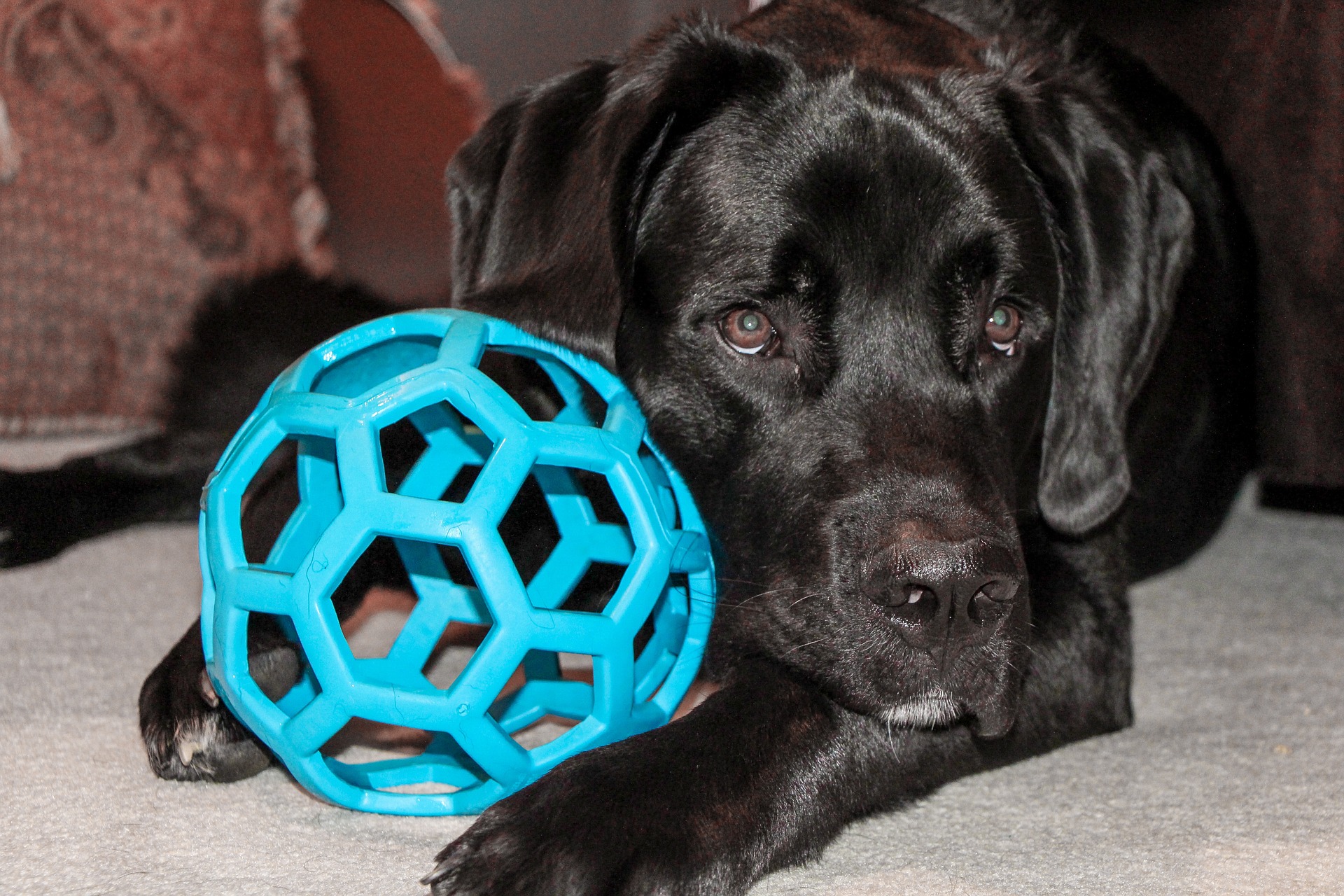
Spending extra time indoors
- Play stimulating games with your dog inside to tire them out a little and keep them from getting bored. Try hiding their toys or treats for them to find!
- Your dog’s diet may need altering if they are getting less exercise over the colder months. With lots of food and not enough exercise, dogs can become overweight. Ask your vet for advice on this.
- Antifreeze is highly poisonous but tasty for dogs, so keep it well out of their reach and mop up any spills! Contact a vet immediately if you think your dog has swallowed antifreeze.
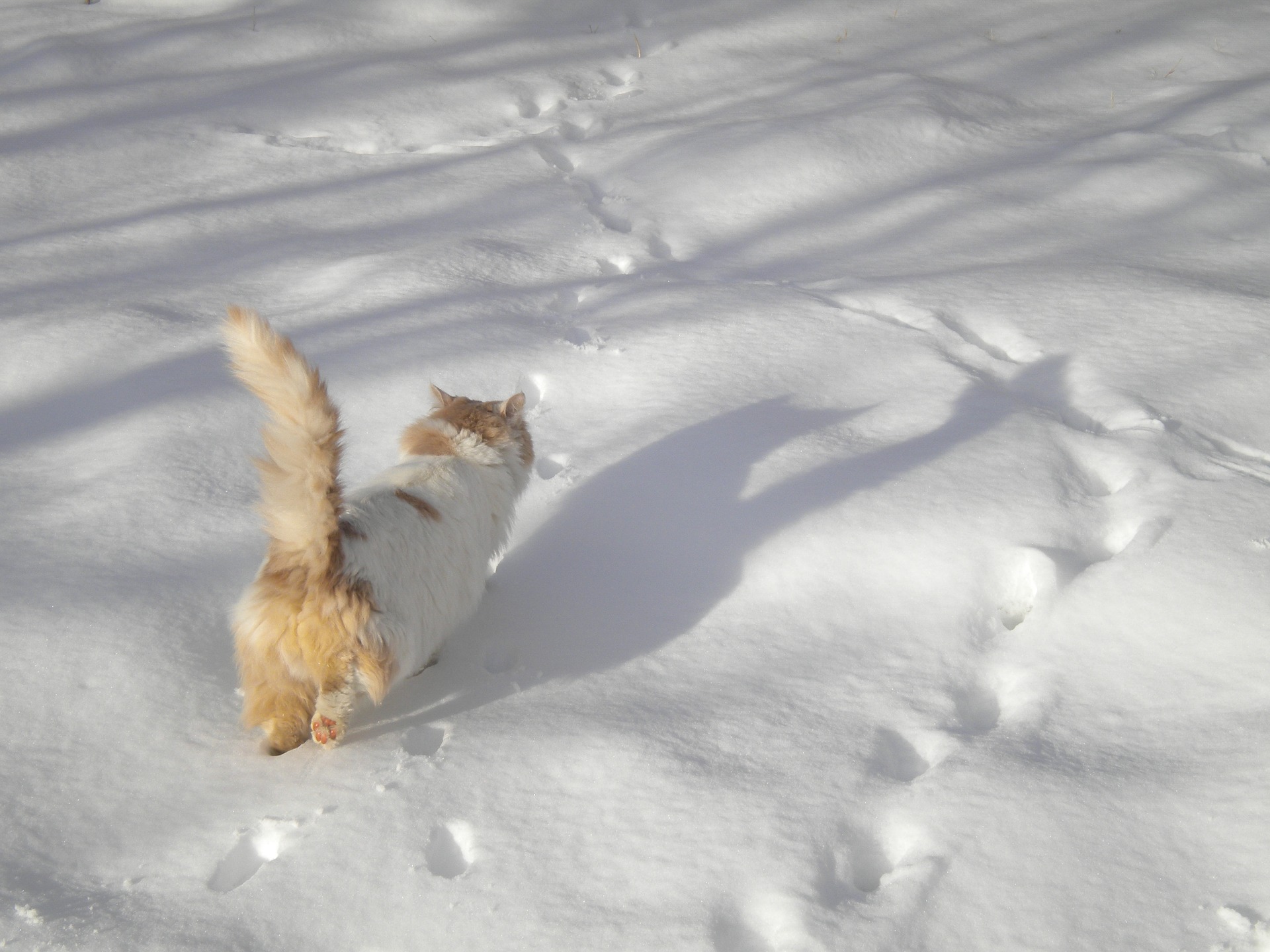
Some cats might still want to brave winter temperatures
Cats
- Provide shelter for your cat outside to ensure they are safe, such as a sturdy cardboard box covered in plastic sheeting.
- Microchipping your cat is important as they might try to find somewhere warm nearby, which might not be the safest place for them. Ensure the details are up to date, so that they can be traced back to you.
- Car engines can be warm and tempting for cats to crawl into. Before setting off in your car make sure you tap the bonnet of your car and check around the wheels and on top of the tyres before you start the engine and drive.
- Antifreeze should be avoided to clear your car windscreen of ice, as some cats are attracted to the taste, but it can prove deadly if they swallow it! De-icers and screen washes can also be dangerous so contact a vet immediately if you think your cat has ingested any of them.
- Cat flaps can become blocked or stuck by a heavy snowfalls or icy patch so check cat flaps regularly to make sure your cat can get easily in and out.
- Freshwater should be provided indoors in case any outside sources freeze.
- Sheds, outhouses and garages should be regularly checked to ensure your cat, or anyone else’s, isn’t locked inside.
- Grit and salt or anything else that might stick to cats’ paws and fur should be wiped away when they come in from the snow to prevent skin irritation.
- Traffic visibility can be reduced as the evenings get darker. If you’re concerned about your cat near roads, keep your them indoors.
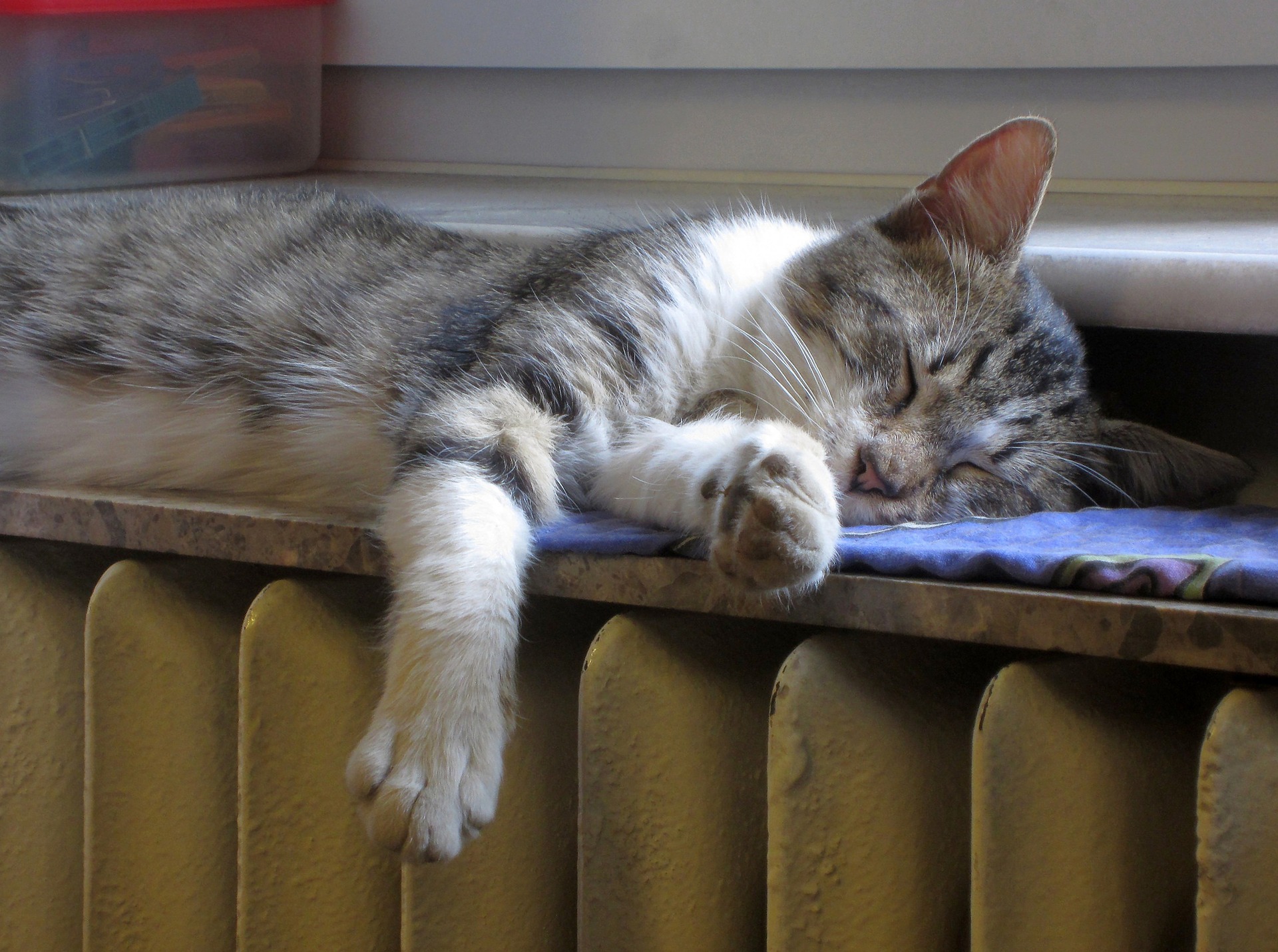
Keeping cats cosy inside
- Keep cats indoors if the weather becomes particularly cold. While they might seem bored or restless, pet cats aren’t used to extreme temperatures and can even develop frostbite or hypothermia.
- Enrichment toys and feeders can keep cats entertained and exercised if they are spending more time indoors because of the cold weather.
- Warm places are important for cats to snuggle up in, so make sure that their beds are away from draughty windows and doors. Heat pads or beds that go over radiators are great.
- Litter trays should be placed in a private spot, so your cat won’t have to head outside to go to the toilet. Remember to scoop it out daily and completely clean it out once a week.
- Open fireplaces are lovely in winter but can be a risk to cats. Screen off open fireplaces and always supervise your cat if you have lit a fire.
- Arthritic and elderly cats can suffer in cold weather as it severely affects their joints. Offer plenty of warm places for your cat to sleep in, as well as making sure they are easily accessible. If you are concerned about your cat’s health or notice any changes, then seek veterinary advice.
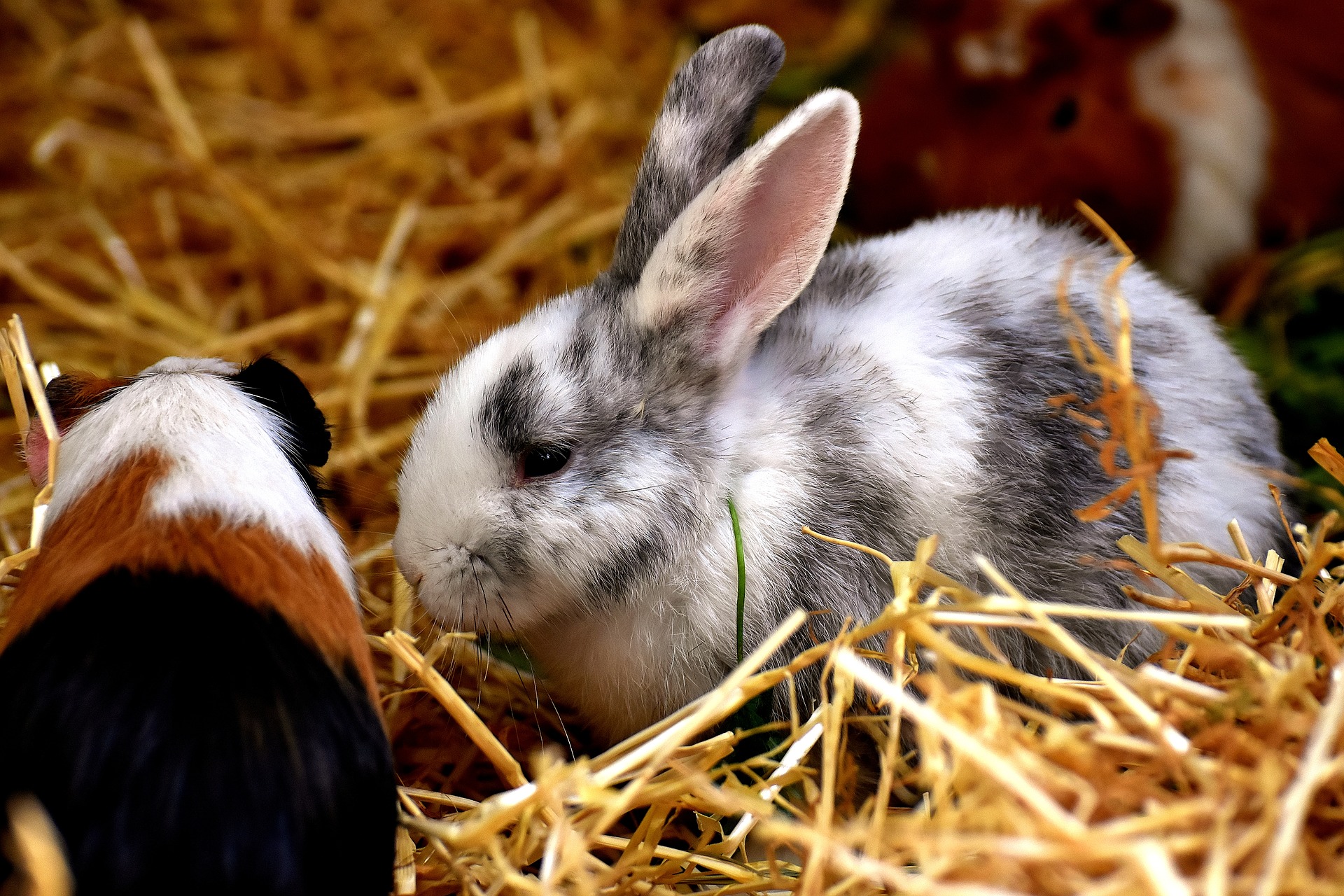
Rabbits and guinea pigs
- Provide fresh leafy greens every day as your rabbit or guinea pig will have less access to these in your garden during the winter.
- Daily exercise is essential even during the winter so make sure your rabbit has opportunities to exercise every day to stay fit and healthy.
If you keep your rabbit or guinea pig outside:
- Extra bedding should be provided to keep them warm. This includes dust-free hay and straw, on top of layers of newspaper, which absorb moisture and provide insulation.
- Store bedding somewhere dry. If hay or straw becomes damp or mouldy throw it away, as eating this could cause your pet to become ill.
- Blankets can cause an intestinal blockage if chewed so should be avoided.
- Homes should be well sheltered. Face their hutch away from the wind, rain, and snow. Cover it with blankets and sheets but leave enough space to allow for good airflow.
- Waterproof, draught-proof and damp–proof housing is essential, so make any necessary repairs or modifications. Check inside your pets’ home for damp or watermarks that may indicate that water is getting in.
- Sloped roof hutches are preferable as they allow water to drain away.
- Raise homes off the ground by at least 4 inches to prevent the base becoming damp and rotten.
- Pet safe wood preservative should be used regularly to treat the outside of hutches and sheds to ensure they are waterproof.
- Water should be checked at least twice a day to ensure it hasn’t frozen. Animals may drink more in the winter if their access to a grassy run or leafy green food is limited.
- Clean the hutch more frequently if your rabbit or guinea pig is spending more time inside during the winter.
- Towel dry your pet if they do get wet outside in the rain or snow.
- Ensure all welfare needs are met by keeping their daily feeding and exercise times consistent. Even though it may be tempting to visit your rabbits less in winter, it’s important to interact with them, continue health checks and groom them regularly.
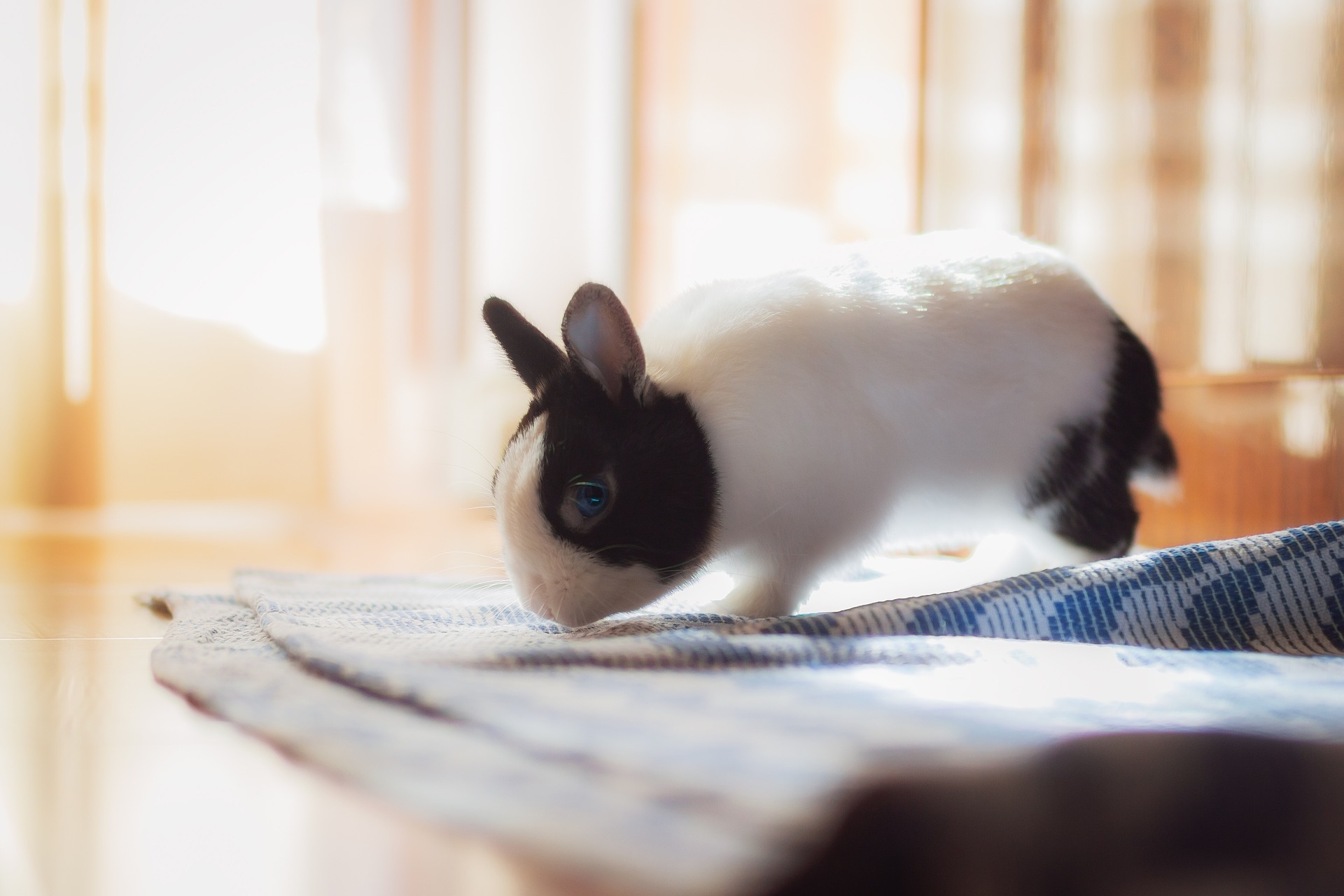
Bring your rabbit or guinea pig inside if possible
- It is ideal to bring your rabbit or guinea pig into your home or into an outhouse, shed or unused garage over the colder months.
- Gradually introduce them to their new indoor home, by bringing them indoors for increasingly longer periods each day during the summer and autumn so that they can settle in and explore their new surroundings.
- Hazards should be identified before moving your pet inside, such as wires they can chew or other pets that they’re not used to.
- Garages that are in use should never be used to house or exercise rabbits or guinea pigs, as vehicle exhaust fumes are harmful for them.
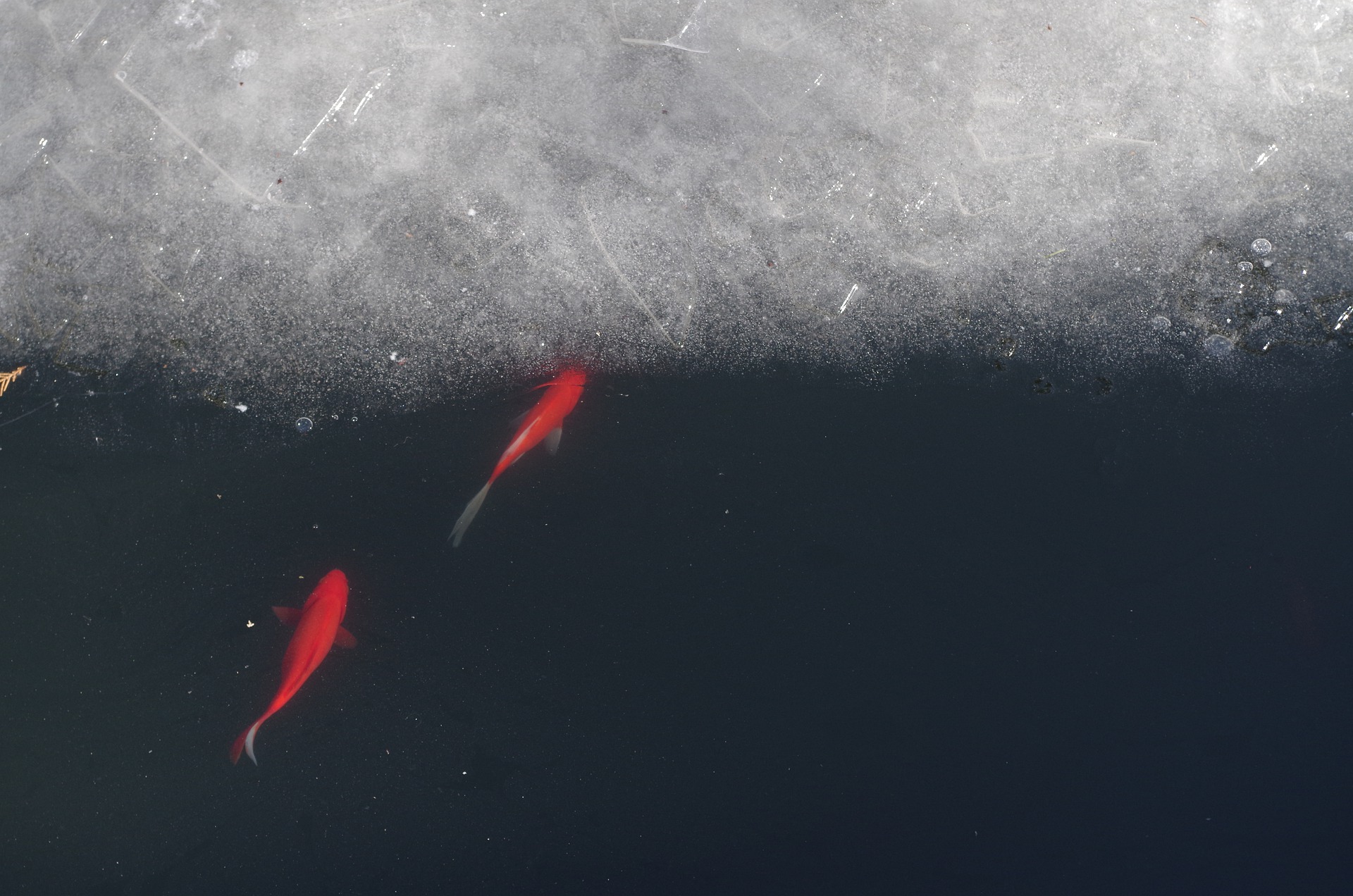
The perils of a frozen pond....
Outdoor fish
- Check your pond daily to make sure the surface is not entirely frozen as poisonous gases can build up under the ice.
- Do not break the ice as shards from the sharp ice could harm the fish.
- Melt the ice by placing a saucepan of warm (not boiling) water on top of the ice to slowly melt a hole in it.
- Boiling water should never be tipped straight onto the pond, as this can also harm or kill any fish living there.
We’d like to thank The Dogs Trust, Cats Protection and The RSPCA for providing the information, which we’ve gathered together for you.
While everyone wants the best for their companions, please spare a thought for the animals who are forced to stay outdoors in all weathers. Many animals, such as sheep, are often forced to stand in fields, in the snow and rain. They cannot take cover as wild animals will do. You can get more information, including how you can stop supporting these practices, here.